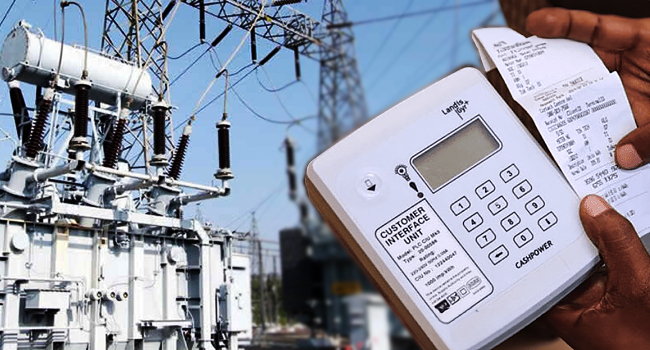The Ondo State Commissioner for Energy, Razaq Obe, has said manufacturers will adjust to paying more for electricity as they get better value.
He told The PUNCH that it would take some time but manufacturers, who had fought against recent electricity tariff hikes, to adjust, noting that they were better off with electricity from DisCos than generating power by buying AGOs.
“If you want to get power, you pay a little more,” the Ondo energy commissioner stated.
Obe, a speaker at a breakfast seminar hosted by the Lagos Chamber of Commerce and Industry themed ‘Developing a Sustainable Energy Market,’ in Lagos on Thursday, said the profitability of the DisCos would grow the market and make it more sustainable as the cost of electricity generation was high.
Other speakers at the energy seminar included the Lagos State Commissioner for Energy and Mineral Resources, Biodun Ogunleye and the LCCI President, Gabriel Idahosa, who recommended strategic initiatives, collaboration, and innovation as a path to sustainable energy in Nigeria.
Ogunleye emphasised the importance of a sustainable electricity market for Lagos State, Nigeria’s economic powerhouse.
The commissioner highlighted the necessity of reliable electricity to power homes, businesses, and industries, acknowledging the persistent challenges of insufficient generation capacity, ageing infrastructure, high transmission losses, and inadequate distribution networks.
However, he emphasised significant opportunities within those challenges, driven by global advancements in renewable energy and innovative business models.
“The global energy landscape is undergoing a transformation, driven by technological advancements, renewable energy sources, and innovative business models. Lagos State is uniquely positioned to leverage these opportunities and become a leader in developing a sustainable electricity market,” the commissioner stated.
Ogunleye recommended increasing electricity generation through a mix of traditional and renewable energy sources.
He noted that investing in renewable energy projects (solar, wind, and biomass) would reduce the carbon footprint and stimulate local economic growth.
He also suggested modernising infrastructure by upgrading transmission and distribution networks with smart grid technologies to improve efficiency and reliability.
Ogunleye said Lagos State would create an enabling environment for private investments in the electricity sector and foster innovation and research by establishing research centres and innovation hubs to explore new technologies and business models in the energy sector.
He also announced the state government’s legislative effort through the Lagos Electricity Bill, currently in the state House of Assembly, which aims to create a sustainable and efficient electricity market.
“The administration of Governor Babajide Sanwo-olu is bullish in its plans to make Lagos a 24/7 powered economy, as captured in its THEMES+ Agenda. Plans are in motion to build 5 energy hubs across the state and over the next two years, achieve 1GW of renewable energy and 2GW of fossil fuel power generation capacity,” he said.
Earlier, the LCCI president stated the need for a sustainable state energy market, emphasising the strategic importance of collaboration, innovation, and investment.
He noted the African Development Bank’s commitment of $1bn to support Nigeria’s power sector and the legislative advancements through the Electricity Act of 2023.
He called for stakeholders to embrace renewable energy as an environmental and economic opportunity and for more investment in training and education to sustain growth in the energy sector.
“Developing the skills and expertise of our workforce is essential for sustaining growth in the energy sector. Investments in training and education, as well as fostering partnerships with educational institutions and industry, will ensure that we have the human capital needed to drive innovation and efficiency in the sector,” the LCCI president remarked.
Idahosa pointed out that despite an installed grid generation capacity of approximately 13,014.14 MW, Nigeria’s energy sector has been struggling with reliability, leaving over 92 million Nigerians in energy poverty.
He urged the federal and state governments to be proactive in policy formulation and infrastructure development.
